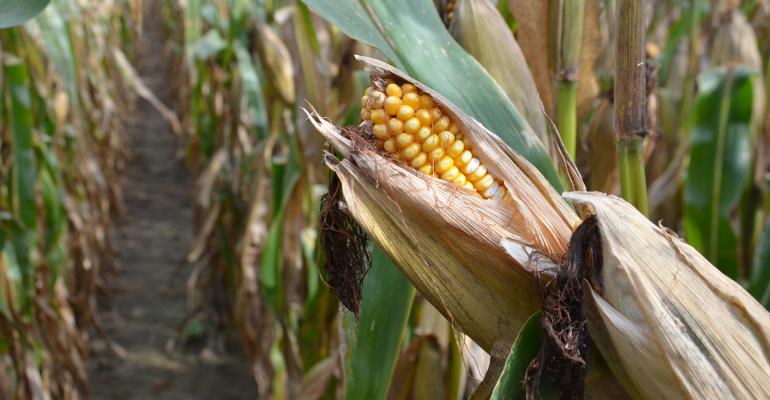Exposed ear tips: Better drydown or more damage?

Corn Pest Beat: Are ears with exposed tips a good trait for drying, or do they expose grain to damage and disease?
Oct 30, 2018
Some plant breeders say they like it when ear tips extend out of husks at harvest because corn should dry down better. I had more bird damage and subsequent ear rot issues this fall, particularly with one hybrid that exposed lots of tips. Should I shy away from that hybrid? It was my second-best yielder, and I only got docked for damage at the elevator on two loads out of 10 loads of corn from that particular hybrid.
The Indiana certified crop adviser panel answering this question includes Andy Like, Syngenta sales rep, Vincennes; Jeff Nagel, agronomist, Ceres Solutions, Lafayette; and Andy Shemwell, agronomist, Posey County Co-op, Poseyville.
Like: I would avoid that hybrid if you could replace it with a hybrid that yields as well but doesn’t have the ear sticking out. If you can’t replace it with a similar hybrid, I would stick with the hybrid and accept the dock, since it was only on 20% of the grain.
Nagel: Like with many farming decisions, there’s not always a clear-cut answer. Certainly, exposed ear tips are more susceptible to bird damage, ear rots and dockage. Damaged kernels can also create grain quality concerns for longer-term on-farm storage. If it was an average- to below-average-yielding hybrid, you would replace it. But it’s a tougher decision given its yield potential.
Most hybrids will dry down at about the same rate given good environmental conditions. With less-than-optimum conditions, hybrid characteristics like husk number, thickness, tightness and looseness will result in some differences in drydown rate. The thickness of the outer layer of the corn kernel and whether ears remain upright or drop can also impact drydown. It might be time well spent researching hybrids for a replacement that offers strong yield potential with good drydown, but typically has fewer exposed ear tips.
Shemwell: With a corn hybrid that has an open husk, you will get more bird damage, which will lead to ear rot such as fusarium and trichoderma. You can also have kernels sprouting on the ear when ears are still upright.
I would consider planting a hybrid that would also yield very well on my farm that didn’t have this issue. Ask your local seed dealer or seed agronomist for a recommendation. If you know that this can be a problem, then you can solve it now — not next fall when it could be worse.

